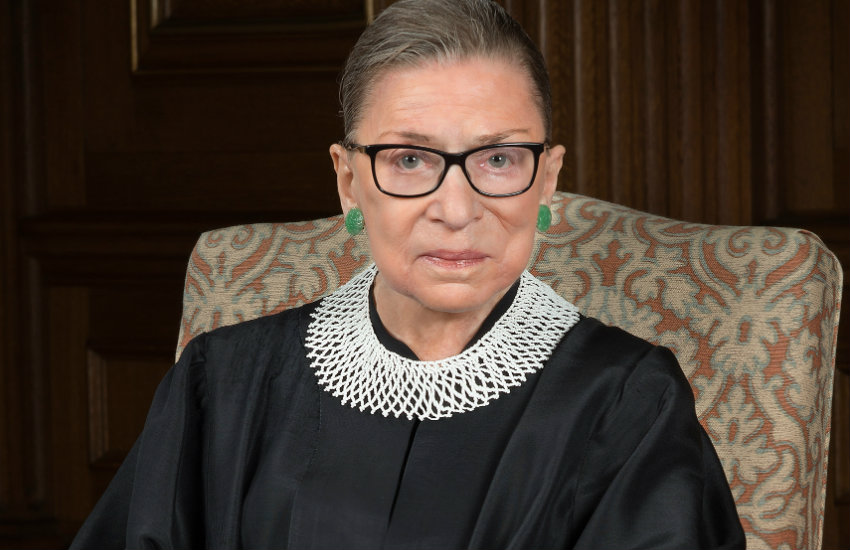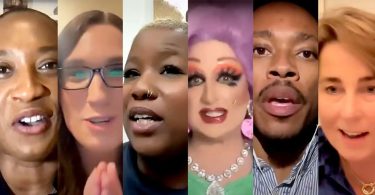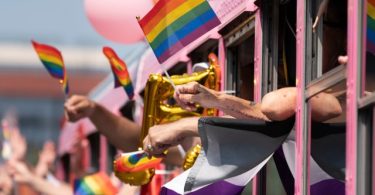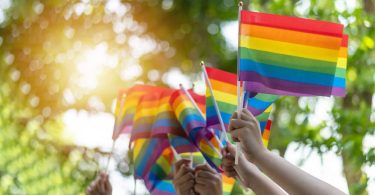Notorious RBG in the house | Photo: Wikimedia/US Supreme Court
25 years ago today, Ruth Bader Ginsburg swore in as a Supreme Court Justice. President Bill Clinton appointed her to the position, making her the second female justice.
Since assuming the role, Ginsburg — fondly called the Notorious RBG by admirerers — has staunchly fought for civil rights, equality, and more.
1. Marriage Equality
Ginsburg has long been a vocal supporter of marriage equality. Prior to the Obergefell decision making marriage equality legal across the land, Ginsburg was determined that the country was ready for it.
Then, when the Supreme Court began hearing arguments for Obergefell, Ginsburg shut down every single one arguing against same-sex marriage.
Justice Kennedy, who recently announced his retirement, penned the majority and Ginsburg joined.
His opinion became iconic and Ginsburg’s co-signing speaks volumes:
No union is more profound than marriage, for it embodies the highest ideals of love, fidelity, devotion, sacrifice, and family. In forming a marital union, two people become something greater than once they were. As some of the petitioners in these cases demonstrate, marriage embodies a love that may endure even past death. It would misunderstand these men and women to say they disrespect the idea of marriage. Their plea is that they do respect it, respect it so deeply that they seek to find its fulfillment for themselves. Their hope is not to be condemned to live in loneliness, excluded from one of civilization’s oldest institutions. They ask for equal dignity in the eyes of the law. The Constitution grants them that right.
2. Performing gay marriages
Not only does Ginsburg consistently support marriage equality constitutionally, but she also shows her support in practice.
She has performed numerous gay weddings, as well as officiating a gay US ambassador’s vow renewals.
3. Masterpiece Cakeshop
Most recently, she penned a scathing dissent in the Masterpiece Cakeshop case, which narrowly found for a baker who refused to make a wedding cake for a gay couple.
Ginsburg dissented from the majority, writing: ‘When a couple contacts a bakery for a wedding cake, the product they are seeking is a cake celebrating their wedding ― not a cake celebrating heterosexual weddings or same-sex weddings ― and that is the service [the couple] were denied.’
She ‘strongly’ disagreed with the majority opinion and maintained the baker was protesting his customers and their sexuality, not the cake or free speech.
4. LGBT as a constitutionally-protected class
Romer v Evans was a 1996 case where the majority deemed an amendment in Colorado’s state constitution preventing LGB people from an acquiring protected status did not meet the Equal Protection Clause.
Therefore, Colorado could not target LGB people in such a manner. Kennedy penned the majority and Ginsburg joined again.
They determined the explicit targeting of LGB people lacked any legitimate government purpose.
5. Ban sodomy laws
2003 finally saw the legalization of same-sex sexual activity nationwide in the US with Lawrence v Texas.
Once again, Kennedy wrote the majority opinion and Ginsburg joined him.
As Kennedy wrote: ‘The petitioners [Lawrence and Garner] are entitled to respect for their private lives. The State cannot demean their existence or control their destiny by making their private sexual conduct a crime.’
6. State laws protecting gay rights
Romer v Evans, once more, affirmed this. Along with making LGB people a protected class, it also determined that state laws can protect gay rights.
Ginsburg supported Kennedy’s opinion: ‘To the contrary, the amendment imposes a special disability upon those persons alone. Homosexuals are forbidden the safeguards that others enjoy or may seek without constraint.’
7. Boy Scouts should allow gay members
Boy Scouts of America v Dale is a 2000 case, in which the majority determined the Boy Scouts of American can exclude gay members under the constitutional right of freedom of association.
While Ginsburg does not write many opinions herself, she always makes her stance known. In this case, she joined Justice Stevens’ dissent.
Stevens wrote in the dissent that ‘every state law prohibiting discrimination is designed to replace prejudice with principle’. He also noted that the decision could aggravate serious and ‘ancient’ discriminations against gay people.
Of course, now the Boy Scouts allow both gay and trans members.







